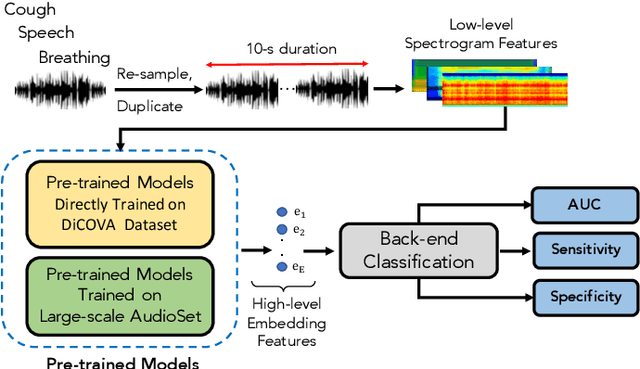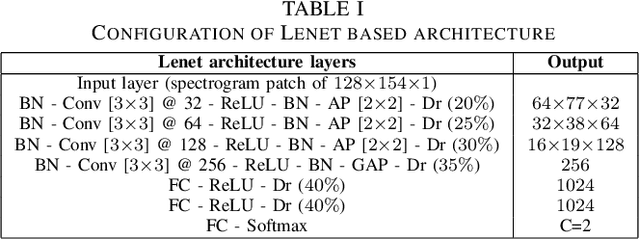Audio-Based Deep Learning Frameworks for Detecting COVID-19
Paper and Code
Mar 02, 2022



This paper evaluates a wide range of audio-based deep learning frameworks applied to the breathing, cough, and speech sounds for detecting COVID-19. In general, the audio recording inputs are transformed into low-level spectrogram features, then they are fed into pre-trained deep learning models to extract high-level embedding features. Next, the dimension of these high-level embedding features are reduced before finetuning using Light Gradient Boosting Machine (LightGBM) as a back-end classification. Our experiments on the Second DiCOVA Challenge achieved the highest Area Under the Curve (AUC), F1 score, sensitivity score, and specificity score of 89.03%, 64.41%, 63.33%, and 95.13%, respectively. Based on these scores, our method outperforms the state-of-the-art systems, and improves the challenge baseline by 4.33%, 6.00% and 8.33% in terms of AUC, F1 score and sensitivity score, respectively.
 Add to Chrome
Add to Chrome Add to Firefox
Add to Firefox Add to Edge
Add to Edge